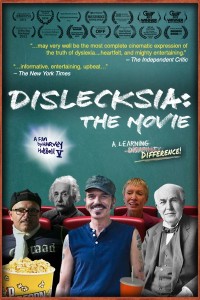Falling Through The Cracks
As I continue with the rewrite of Stoked, my YA novel about Jake Edwards, a thirteen year-old boy with dyslexia growing up in the 1960's, I realize that our educational system continues to be flawed. Our teachers continue to be poorly trained; one out of five students, roughly 20% of the student population, struggles with reading. This is a statistically significant number of children. I keep wondering, why is it that children with dyslexia are still being told that their brains are broken and bad?
No child should be left to fall through the cracks. The Orton-Gillingham method of instruction isn't just a method of instruction for dyslexic students; it's a great educational method for all children. Multi-sensory, direct, explicit, sequential, cumulative, language-based instruction is just good teaching. In order to be a successful reader, a child must master the sound system of our very complex language. The Orton-Gillingham method for teaching reading is based on the fundamental principles of the structure of the English language. This multi-sensory approach can be adapted to all content area subjects.
It's time that our educators recognize that a person with dyslexia learns differently, and that it's their responsibility to teach to these learning differences. I doubt if dyslexia was a disability before the invention of the printing press.
A dyslexic brain is a gift; these are the brains that think globally. These are the visual-spacial, critical thinkers who see the bigger picture of things. These are the problem solvers who think in images. The neurologist, Norman Geschwind believed that, "dyslexia was nature's way of producing different brains. In so doing, a survival mechanism of the human race was created to do things that the human race never knew it needed to be able to do."
Speaking, a natural thing for humans, has been around for hundreds of thousands of years, but writing and reading have only been around for five thousand years. Our brains are not hard-wired for reading as they are for speaking. During the time of the cave man, a dyslexic brain would have been honored, for those were the people who could problem solve, could think outside the box for the good of the group.
I am evolving with my protagonist, Jake, rooting for him to overcome the emotional baggage he picked up as he struggled in school. As I researched dyslexia, I came upon an awesome book called. Dislecksia: The Book, by Harvey Hubbell V. Harvey invited people to bring his documentary, Dislecksia: The Movie, for a pre-screening event in their home town. Harvey is dyslexic. He wants to spread awareness about what dyslexia is, how it can be treated through education, and how it is an advantage instead of a disability.
 I am hoping to bring Harvey out to the Hamptons where he'll host a screening of the movie. It's time for our educators and our administrators to understand that cracking the code isn't about intelligence. It's about adopting a successfully prove, scientifically-based, educational model that works. Check out the film's website at: www.dislecksiathemovie.com.
I am hoping to bring Harvey out to the Hamptons where he'll host a screening of the movie. It's time for our educators and our administrators to understand that cracking the code isn't about intelligence. It's about adopting a successfully prove, scientifically-based, educational model that works. Check out the film's website at: www.dislecksiathemovie.com.
 I am hoping to bring Harvey out to the Hamptons where he'll host a screening of the movie. It's time for our educators and our administrators to understand that cracking the code isn't about intelligence. It's about adopting a successfully prove, scientifically-based, educational model that works. Check out the film's website at: www.dislecksiathemovie.com.
I am hoping to bring Harvey out to the Hamptons where he'll host a screening of the movie. It's time for our educators and our administrators to understand that cracking the code isn't about intelligence. It's about adopting a successfully prove, scientifically-based, educational model that works. Check out the film's website at: www.dislecksiathemovie.com.


